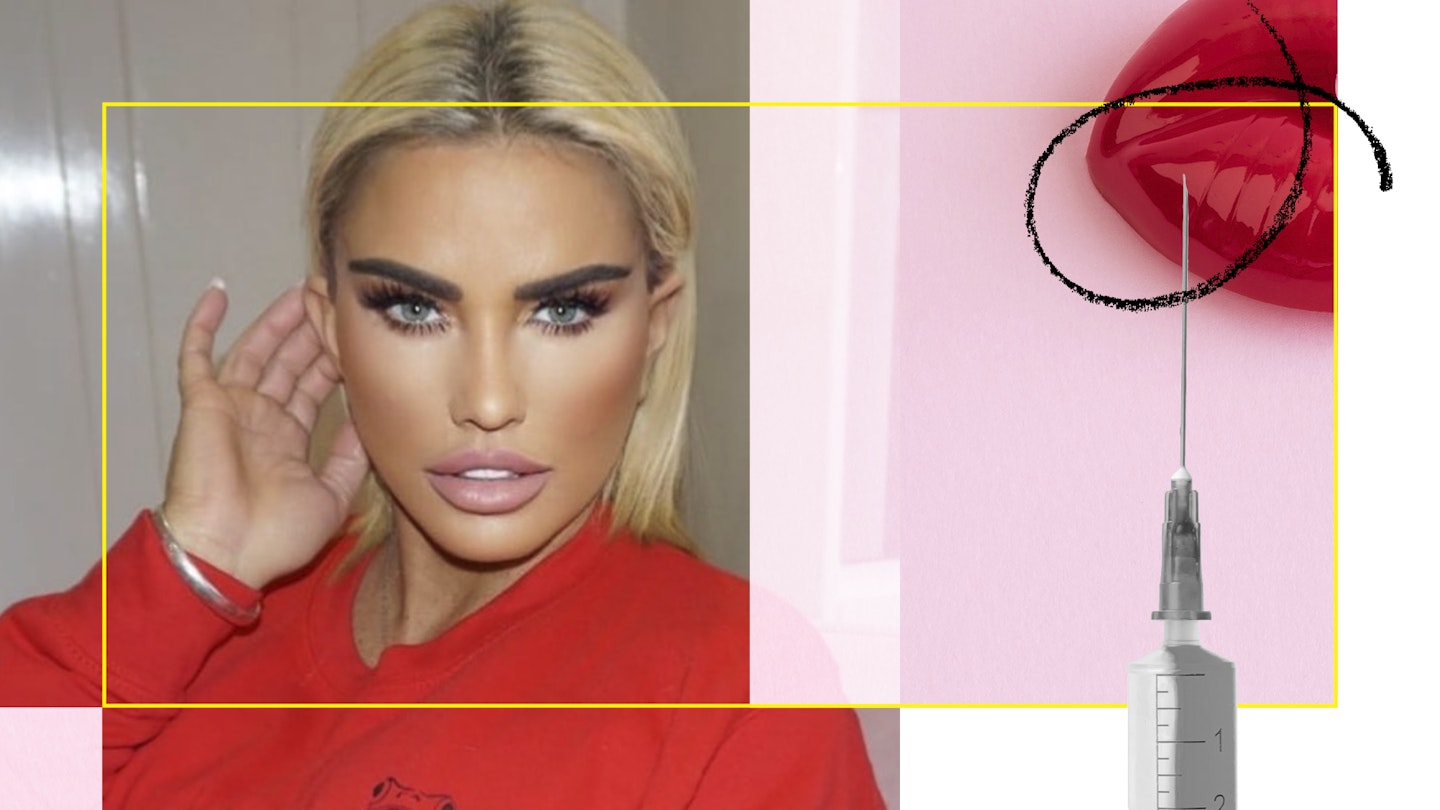Katie Price took to Instagram this month and revealed her plans to complete an aesthetics course, her aim being to eventually administer injectables to clients. Price shared the news on her Instagram Stories where she explained to her 2.6 million followers, 'I've been studying for six months ready to do my aesthetics course. I've been everywhere to do Botox, lips [filler] and that sort of thing, and I've finally found the perfect place to train.'

The news comes not long after Laura Trott MP successfully campaigned to ban botox and filler for under 18s. The new legislation, which came into effect in October, stipulates that under 18s may only undergo such procedures when there is a medical need to do so, and that only a doctor, registered medical practitioner or health practitioner may carry out the relevant procedure.
Trott recalls meeting a girl under the age of 18, who booked a lip filler appointment having seen it advertised at a discounted rate on social media. After a terrifyingly slapdash appointment, she experienced excruciating pain and loss of sensation. She suffered a vascular occlusion, meaning the filler was compromising the blood flow to the tissue around her mouth. You can read more details on the story here.
There is growing concern that, though Trott's 'Botox Bill' was successful, the 'tweakments' arena as a whole remains largely unregulated. Lesley Blair, CEO and Chair of BABTAC (the British Association of Beauty Therapy and Cosmetology), last week cautioned against booking in with practitioners whose qualifications can be traced back to 'fast-track' courses like Price's:
'Both as an insurer and as an industry body on a mission to raise standards in the beauty sector, BABTAC does not condone these fast-track courses that are increasingly being taken by influencers in order to administer injectables,' says Blair. 'Medical grade training is essential to safely carry out these procedures and to ensure the professional is able to act in the event of any complications. If you can’t prescribe an antidote - if necessary - you shouldn’t be administering injectables. Anything less than that puts customers at serious risk.'
The same sentiment feeds into BABTAC's Make Beauty Safe campaign, which launched last year and has the backing of key industry figures like Caroline Hirons, who says:
'There are so many dire repercussions due to the lack of regulations in our industry, beginning with reputable fit for purpose qualifications having to compete with cheaper unverified substandard training (or worse still no training at all) resulting in under-qualified therapists who are able to provide rapidly advancing treatments without any verification or insurance. Safety and professionalism should be at the heart of everything we do, and with so little accountability this currently just isn’t the case in far too many circumstances - to the detriment of our reputation and the wellbeing of our clients.’
4 Questions To Ask Your Practitioner If Booking In For Botox Or Fillers
Booking in for Botox or fillers? BABTAC recommends asking your practitioner the following questions:
Are you medically trained and what qualifications do you have?
What do you have in your emergency kit?
Who are you insured by?
What aftercare do you provide?
